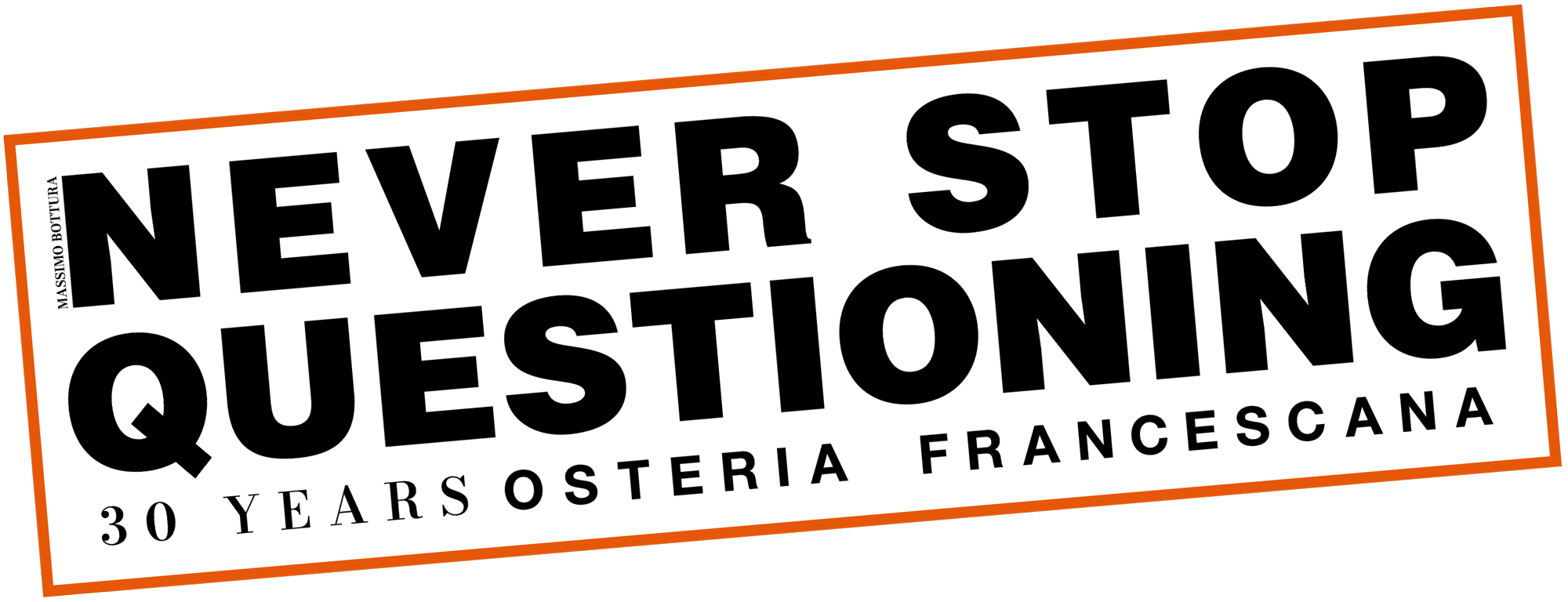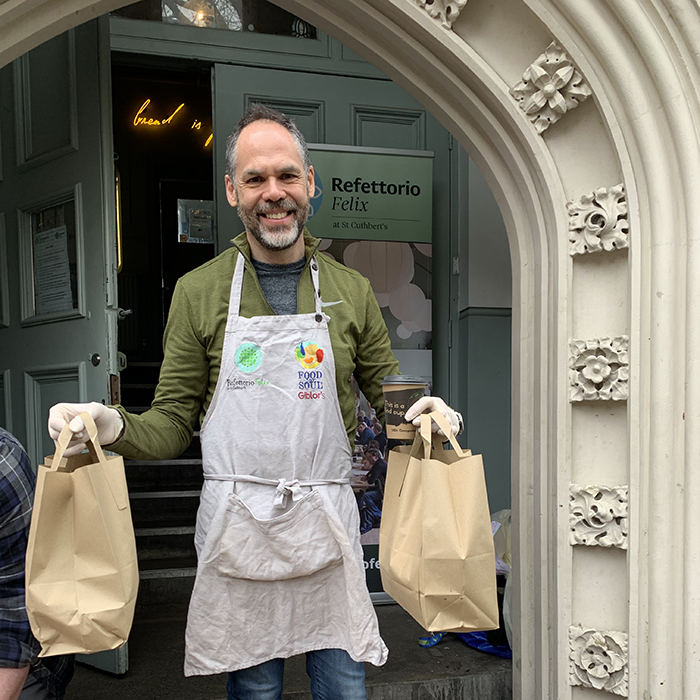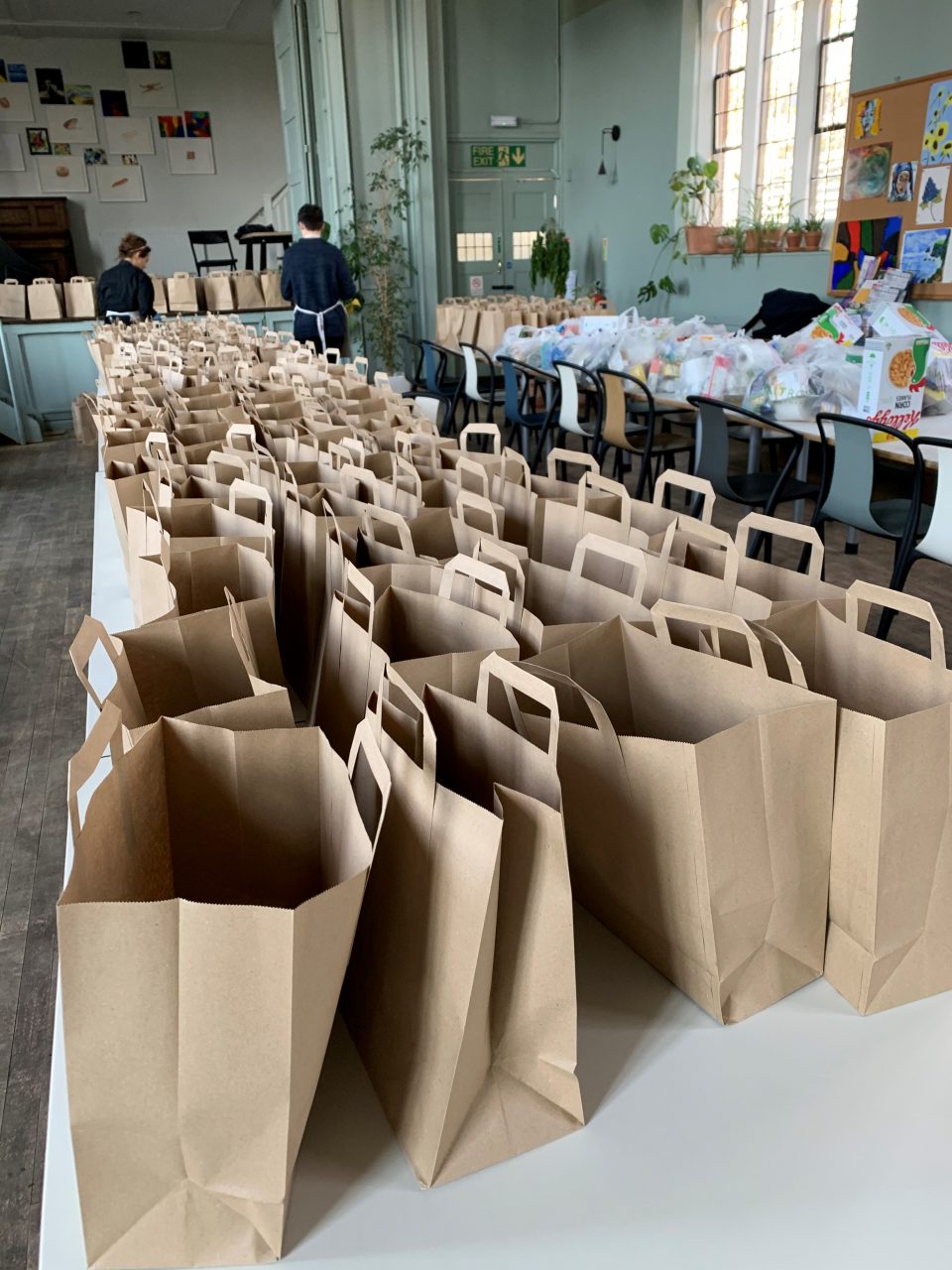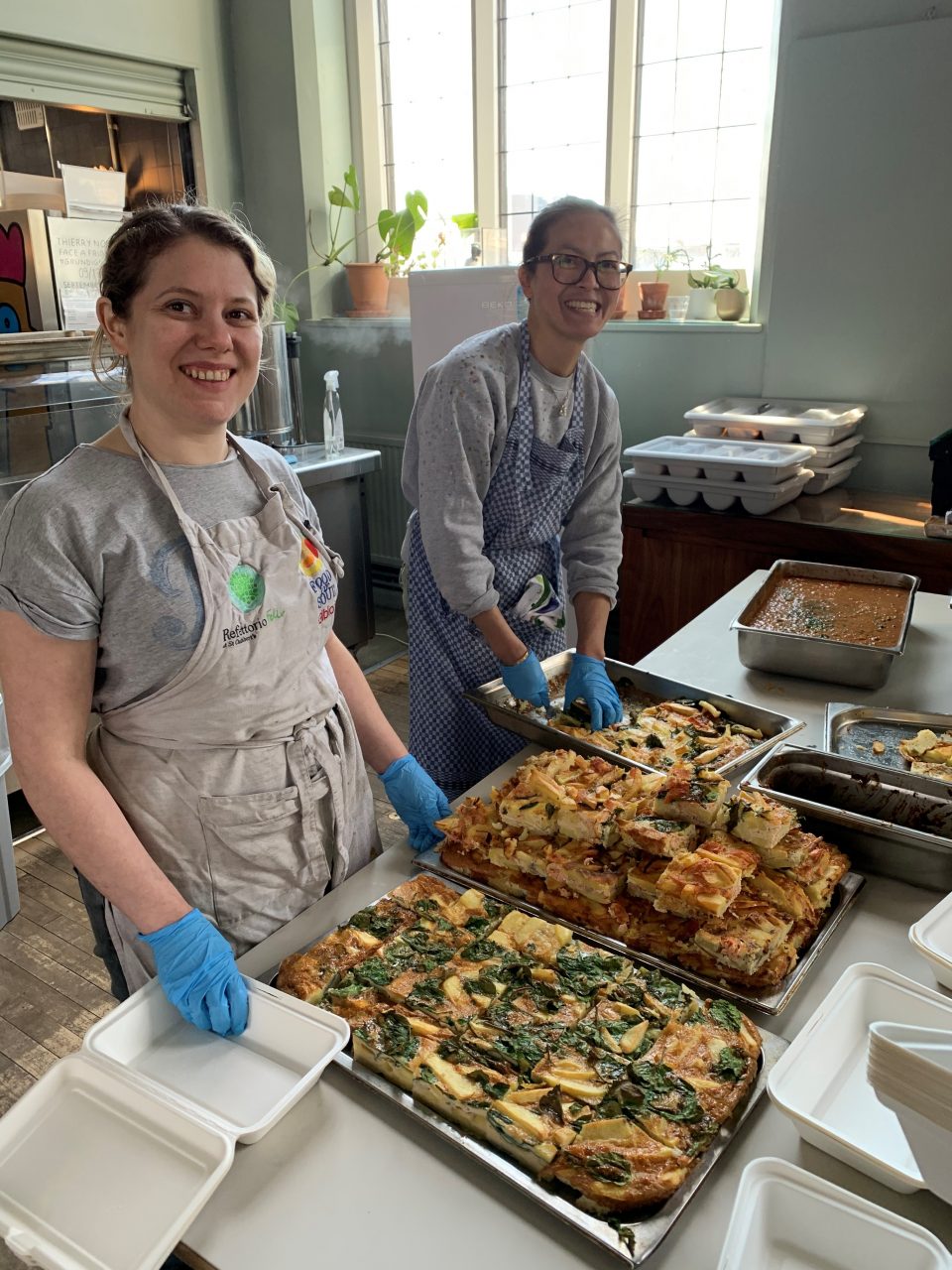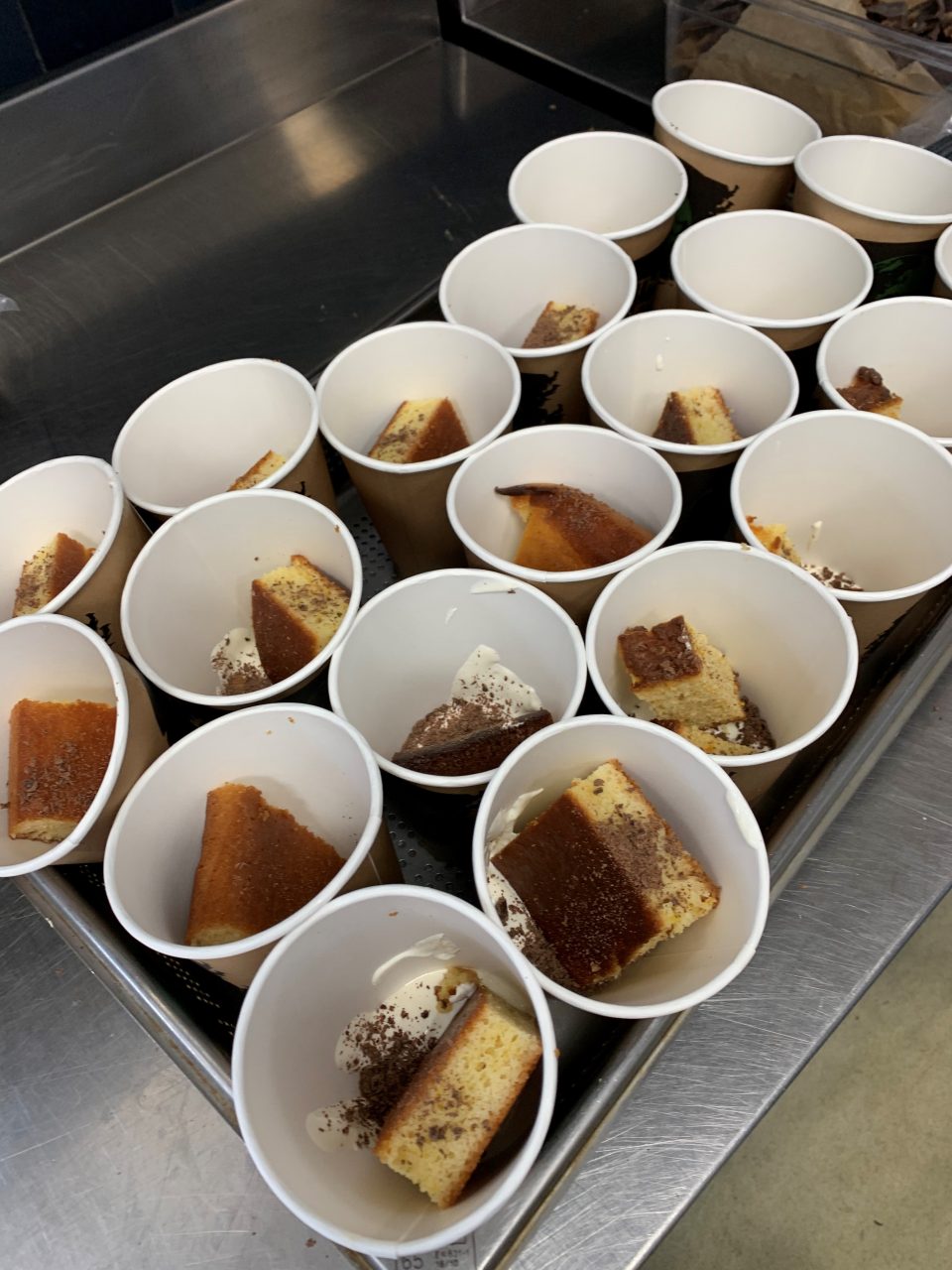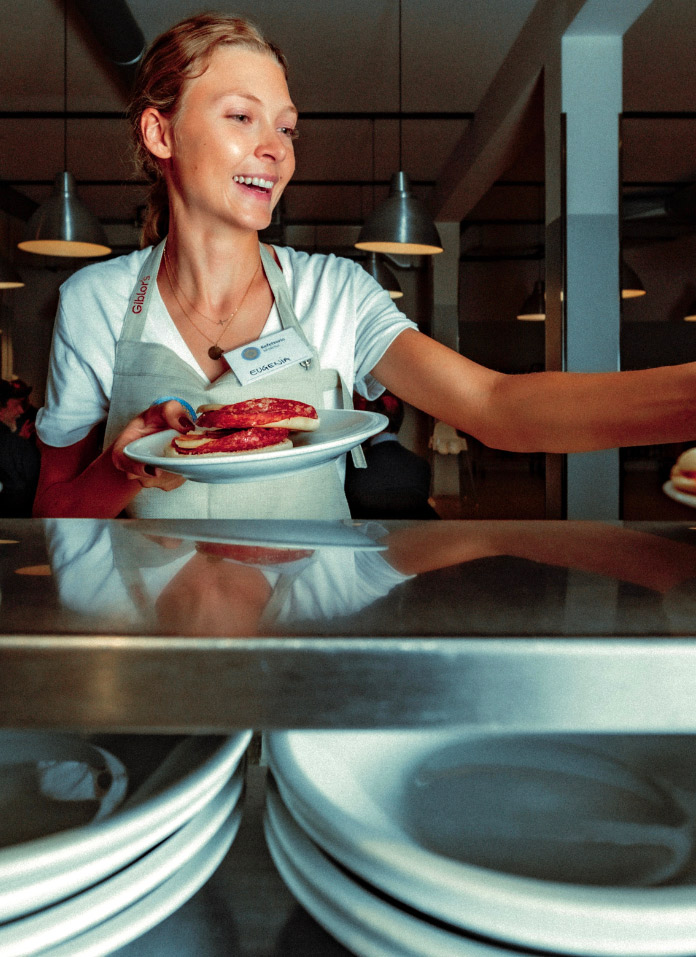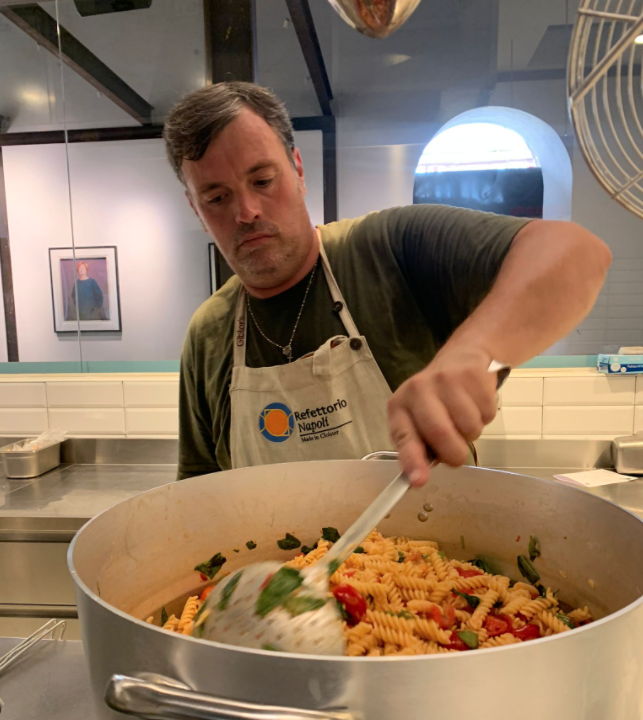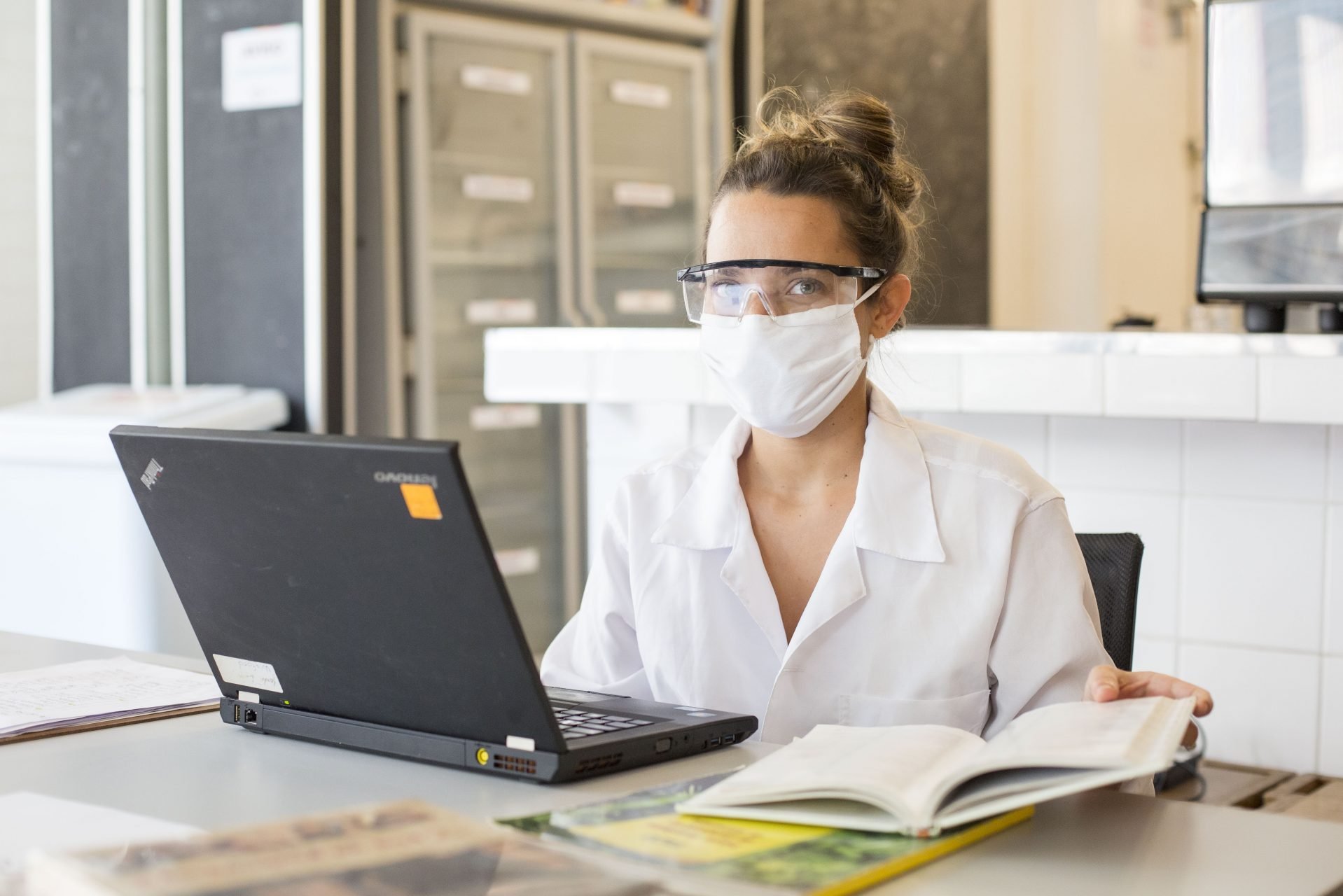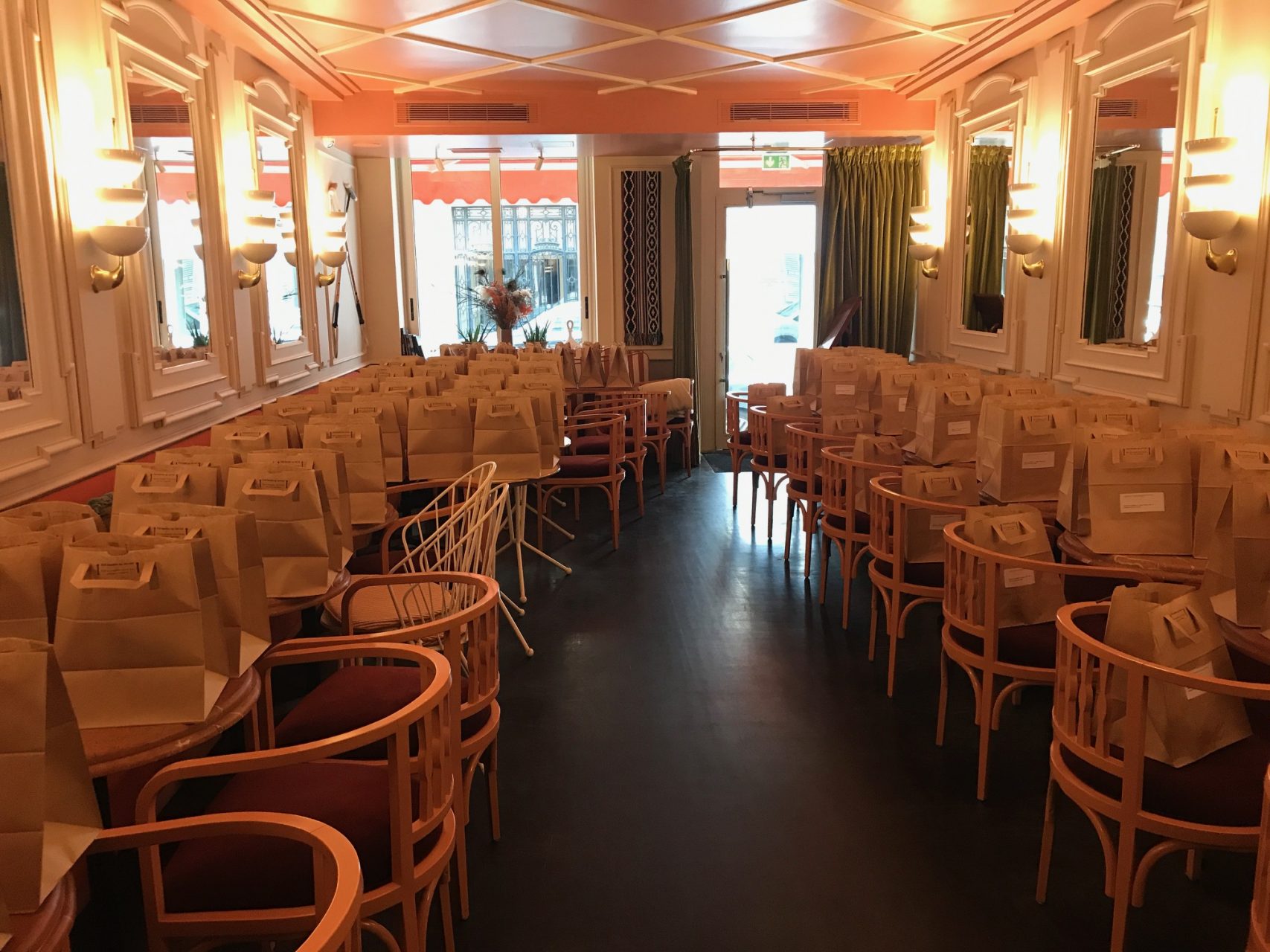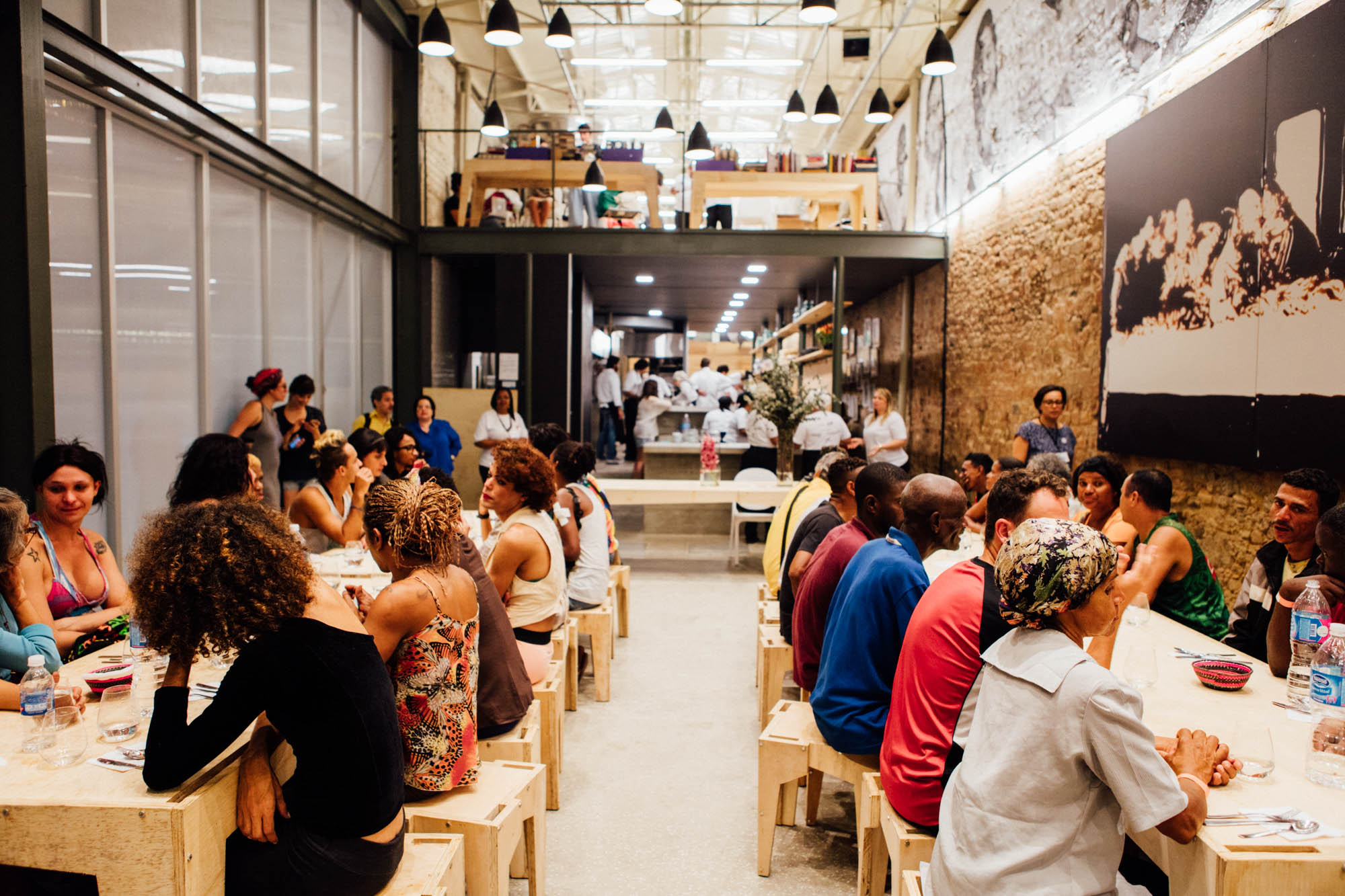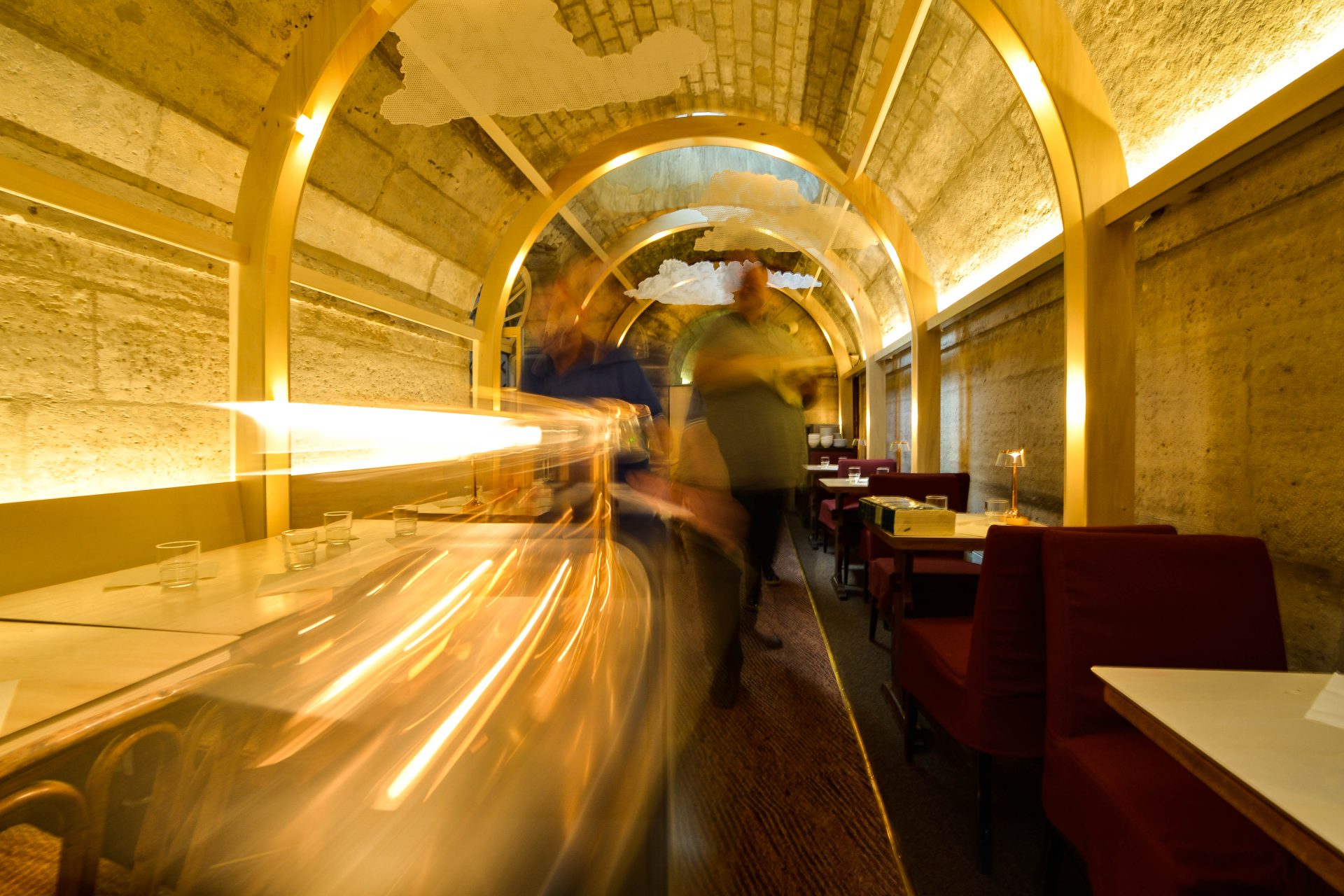Credits: Refettorio Felix
Refettorio Felix never stops, even in the worst circumstances. Thanks to the help of many passionate volunteers like Graham and their supportive staff, the Refettorio is putting in place measures to face this global crisis and continue to make guests feel cared for and loved, believeing that the more you care for those around you, the stronger our communities become.
The current global health emergency has forced people all over the world to face new challenges such as working from home, avoiding seeing loved ones or practising social distancing. But, however harsh and difficult these conditions may seem, we must always remember that crisis tend to affect the most those who are already experiencing situations of social and economic vulnerability.
The staff and volunteers at Refettorio Felix in London know it well, and they’re working tirelessly not only to make sure that people in need continue to have access to good and healthy food, but also to raise awareness on the fact that they are in need and will continue to be so throughout this crisis. This amazing team of people is doing their best to collect items in the amounts they need to keep operating safely, such as disinfectant spray, hand sanitizer, disposable gloves and masks. The staff is collecting food surplus donated by restaurants and supermarkets that are now closed and has been preparing takeaway lunch boxes for the guests. They have also been handing out mobile phones so that guests can have access to their mental health workers, who are working remotely.
These measures are in place thanks to the help of many volunteers who dedicate their time and energy to helping those who need it the most. One of them is Graham Hobson, who has been volunteering throughout the crisis and has now started taking his teenage son Rory with him. He told us: “We’ve learned that society can make big changes to adjust for causes that are important. We’ve all learned to care more about others – even if they are not part of our inner circle of friends and family.”
In a cosmopolitan city like London, how have you seen the situation change? We have been reading of many different initiatives to help people who are most in need. Could you tell us more about how London is showing solidarity during this global emergency?
I think London was slow to embrace the lockdown. But now I see a new London: quiet streets, less planes and cars (better air quality!) and a new camaraderie between residents. There is a real sense that we are all in this together. I might pass people in the street by walking away from them, but there is always a friendly wave as we are doing so, even between complete strangers.
What initiatives have you been taking part in at Refettorio Felix? How has the service been different?
My wife first introduced me to Refettorio Felix three years ago as she was volunteering for The Felix Project. I had some time available between jobs then and used to work one lunch service per week for a few months. Once again I had some time available from the start of 2020 and so resumed my once a week lunch service. It’s great to see that the service has the same amazing food, passionate people working there, and grateful guests. In the last month though we’ve had to adapt due to the Covid-19 crisis by serving takeaway food and I’ve increased the number of days that I’m helping each week.
Have you seen a shift in the guest population who seeks support from the Refettorio? Have you been serving more or fewer people?
Since we’ve been serving takeaway food there has been an increase each week in the number of guests coming to us. Unfortunately this seems to be because many other centres in West London have had to shut, so now our work is more important than ever.
How have those who usually receive support from Refettorio Felix been affected by the social distancing measures? Has it changed their attitude? Are they more scared and distant, or are they seeking community spirit and social contact?
Our guests are disappointed to not be able to use more of the centre’s facilitates (for example, clothes washing, showers and phone charging) but they understand why we’ve had to close those services until it is safe to reopen them. We’ve seen that our guests are very respectful of social distancing when coming to us to collect lunch.
A lot of people are feeling powerless in a moment like this and they would like to do a lot more for their communities. What are, in your opinion, some of the ways in which people can support one another while respecting the new health measures?
From my personal perspective, once we got over the shock of lockdown, adjusting to the new reality and a binge-fest of Netflix, we were looking for more meaningful ways to help. In the last few days I’ve seen amazing examples of creative thinking to help others. Several companies I work with have changed their service to provide free services to NHS staff or to vulnerable people. Examples are: Bubble offering free child care to NHS staff, Hiyacar offering free car rentals for NHS staff in London to get to and from work or longer journeys and Pinga, an app with free delivery for convenience store products delivered to the door of vulnerable people. These were projects that would have taken months previously to organise, but instead rolled out within days. I’m seeing examples of this spirit all across London, from neighbours, friends and business contacts. It’s great to see at this time of need.
You brought your son Rory to volunteer at the Refettorio Felix. Why did you decide to do it? Do you think this could be a way to raise awareness and a sense of responsibility in young people?
I’ve brought two of my three sons to help on shifts in the past two weeks. Rory, who is 23 and an actor, and Evan, 18 in the final stages of his A levels. My other son Finn, 21 is head down in his final Masters dissertation so I’ve haven’t roped him in yet. To be honest I brought both of them for two reasons: we needed the help; one day we had to prepare and distribute 270 meals and we needed all the hands we could get. Also, it got them out of the house for a very worthy cause and I felt it would be good for their mental health and self-esteem at this difficult time for us all.

How has your role as a volunteer changed? Is the management of volunteers by the Refettorio any different from before?
A lot of the volunteer teams are experienced now, and we’ve got to know each other well. We get straight to work as soon as we get there and know the ropes for how to get the food out efficiently each lunchtime.
How do you think this situation is changing our relationship with one another? Do you see any positive aspects or lessons that we can learn from this situation?
I hope and feel confident that some positive changes will come out this crisis. We’ve learned that society can make big changes to adjust for causes that are important. We’ve all learned to care more about others – even if they are not part of our inner circle of friends and family. I hope we can apply these principles to other major issues like climate change in the years to come. But we mustn’t forget that in the short term the people least able to cope are paying the biggest price during this crisis, and they need our help now.


